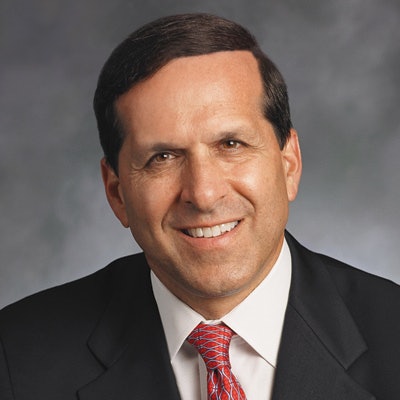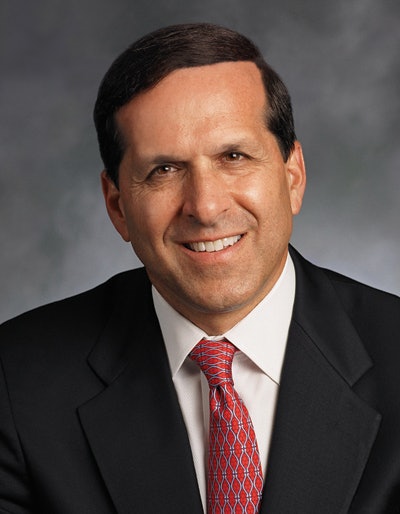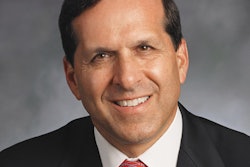
Dentistry is experiencing a staffing crisis like many businesses in the U.S. For the first time in dental history, practices are experiencing decreased revenue, slightly fewer hours, and increased fatigue and burnout due to the challenge of hiring new team members. Without delving into all the reasons why dental team members have left practices or the profession itself, one of the most prominent factors is compensation.
Understanding compensation from the staff point of view
 Dr. Roger P. Levin.
Dr. Roger P. Levin.We believe there was a staffing shortage to a small degree even prior to the pandemic; however, the pandemic has significantly accelerated and exacerbated that shortage. Practices are competing for a smaller number of available team members and one of the go-to strategies for attracting candidates is to offer higher compensation. But why do staff members want higher compensation? Is it simply because practices are willing to pay more, and they only care about having the highest possible income? That may be part of it, but there are other key factors as well.
Consider these five reasons why compensation is important to dental staff members.
1. Staff compensation can be tied to a staff member's lifestyle.
It is not simply about staff members chasing every dollar; instead, think about how those dollars will allow them to pay for the basic necessities. When people can improve their compensation, they see an opportunity to decrease debt and stress, increase savings, and focus on retirement.
2. Staff compensation is also about status.
Team members often share compensation information despite requests to keep it confidential. If a team member hears that an equivalent colleague or new hire is being compensated at a higher level, there is an immediate feeling of dissatisfaction.
Many doctors have had the experience of staff members coming to them because they now feel underpaid. In a number of these cases, it's not that staff members are focused strictly on the money or what it will do for their lifestyle, but the fact that the compensation is an expression of their status in the office and how much they feel appreciated.
We know firsthand that many staff members leave practices simply because they don't feel they are properly appreciated, and one of the ways they measure this is by their compensation.
3. Compensation defines their personal worth.
This is different than compensation being used as a measurement of status. Many staff members believe they are high contributors to practices and their sense of personal worth and value, or maybe even ego, is partly tied to their compensation. When people think they're underpaid, they feel they are being undervalued and may gravitate to another dental office where they feel better about themselves.
4. Compensation is tied to a sense of fairness.
When team members find out they are underpaid, whether from a coworker or advertisements on indeed.com, it is a sudden wake-up call that they're being treated unfairly.
Again, this is different than compensation contributing to a sense of status or self-worth. When team members feel they are being treated unfairly, they often adopt negative attitudes until they decide to leave the practice.
5. Compensation influences team member behavior.
Compensation often affects how people react in their positions, including working in the best interest of the practice versus working in the best interest of themselves. This means that compensation can encourage a person to work hard and be highly satisfied or come to work every day in a bad mood and be unwilling to be a team player.
In fact, if you're wondering why a team member who used to be a high performer may no longer be trying as hard or contributing at the same level, it could be that they are unhappy with their current compensation level but have not taken steps to have a conversation with you or the office manager. Or perhaps they are seeking other employment but have not found a position they feel is suitable for their situation.
These are five reasons why compensation is a critical factor in staffing and staff management. We often point simply to money, and even greed, as the main factor, but as shown above, there are other factors surrounding compensation that play a major role. Either way, practices will need to regularly review compensation and compensation methodologies.
2 approaches to compensation
We receive numerous emails and phone calls with questions about the best way to compensate the team. The simple answer is that there is no single best way, and each job is different.
For example, a dental assistant does not have the same capability of increasing practice production and revenue as a dental hygienist. While assistants can reinforce information provided by doctors and answer questions, hygienists can do all of that and identify significant amounts of additional treatment.
Consider the following compensation approaches for these two positions:
- Offer dental assistants a fair total salary package where they know exactly what their compensation will be each year, not including any practice-wide bonuses.
- For dental hygienists, offer a package where 80% of their compensation is base salary-guaranteed, but 20% is based on commission where they can be motivated to identify additional treatment for patients, keep x-rays and fluoride up to date, discuss aesthetic dentistry or implant dentistry, identify potential periodontal treatment, sell products, or contact patients who are overdue for appointments. We have seen hygienists increase production by 30% to 40% using these techniques when the proper documented, proven, step-by-step systems are put in place and the hygienist is motivated. The key is to make sure the hygienist can earn an unlimited amount on the theoretical 20% commission in this example for going beyond expected performance.
For some team members, full salary is desirable, whereas for others, a base plus commission is more motivating -- and for even others, commission could be the best choice.
Finally, simply paying more money will not necessarily grow a practice. It might maintain the practice or keep it near where it is today, but if you have a strong desire to grow, you must tie compensation to specific measurements. Furthermore, those measurements will be much more easily achieved if documented, proven, step-by-step systems are in place. Practices with systems not only train new team members 100% faster but also elevate the current team to a higher level of performance.
Practice overhead will rise as you increase staff compensation to attract and maintain team members; however, having systems in place will not only offset the increase in staffing cost but also contribute significant growth in revenue and income. This will keep the practice financially successful and provide the proper return on investment for owners and doctors.
Dr. Roger P. Levin is CEO of Levin Group, a leading practice management and marketing consulting firm. To contact him or to join the 40,000 dental professionals who receive his Practice Production Tip of the Day, visit LevinGroup.com or email [email protected].
The comments and observations expressed herein do not necessarily reflect the opinions of DrBicuspid.com, nor should they be construed as an endorsement or admonishment of any particular idea, vendor, or organization.



















